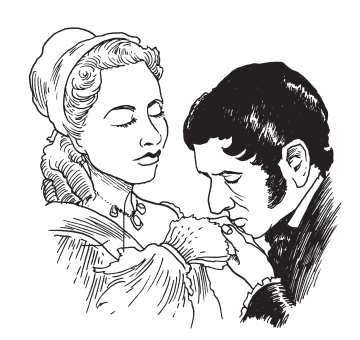I. “WHAT IS ALL THIS ABOUT JANE AUSTEN? WHAT IS THERE IN HER? WHAT IS IT ALL ABOUT?” —Joseph Conrad to H.G. Wells
I’ve been thinking about Austen again. We haven’t had a new Austen movie since Bush took office (coincidence?) so there’s less smoke blowing around the novels, a clearer view of the books as books. According to BookScan, 100,000 copies of Pride and Prejudice sold last year with no help from the movies at all.
In other news, a tea room in Bath, planning to market Jane Austen teas and coffees (in “distinctively nineteenth-century flavors”) found the name already trademarked for restaurant and catering services by a Mrs. Rachel Mary Morton of Dorchester, Dorset.
Plus, I’ve already seen my monthly quota of writers’ lists of recommended reading in which no woman author’s name appears (Carol Shields’s last book, Unless, has resensitized me to the issue) and we still have three weeks of the month to go.
But the real reason Austen has my attention again is that I’m in the process of publishing a work of fiction entitled The Jane Austen Book Club. Four months ago I passed out galleys of this book at the Northern California Independent Booksellers Association Convention. (So much more fun than selling them. I recommend it.) Several people there talked to me about Austen. Many women told me that they read her books over and over again. One woman said, “I read Mansfield Park four times before I liked it.” Another, “I didn’t really get her until I was forty years old.” And from almost every man who picked up a galley, “I’m getting this for my wife.”
Some months ago I showed an early draft of my book to a close friend. He is himself an enormous Austen fan and quotes her aptly when explaining soccer strategies, video games, California politics. The presence in my book, he told me, of one Austen-reading man was perfectly plausible. The appearance of a second was not.
Although my own circle contains multiple Austen-reading men, I suspect he’s right, and have rewritten accordingly.
So among the questions I’ve been asking myself are these:
If I were a man and I liked Austen, would it be for different reasons? (If I were a man, would I ever have read her at all?) And just why is it that I like Austen so much anyway?
II. THE ORIGIN STORY
When I’m not steering it, the conversation these days turns more often to comic books than to Austen. Classic comics inspire a peculiarly reverent, but noisy nostalgia.
Now that someone has explained, (in these very pages—see Benjamin Strong’s “Avengers of...
You have reached your article limit
Sign up for a digital subscription and continue reading all new issues, plus our entire archives, for just $1.50/month.
Already a subscriber? Sign in





